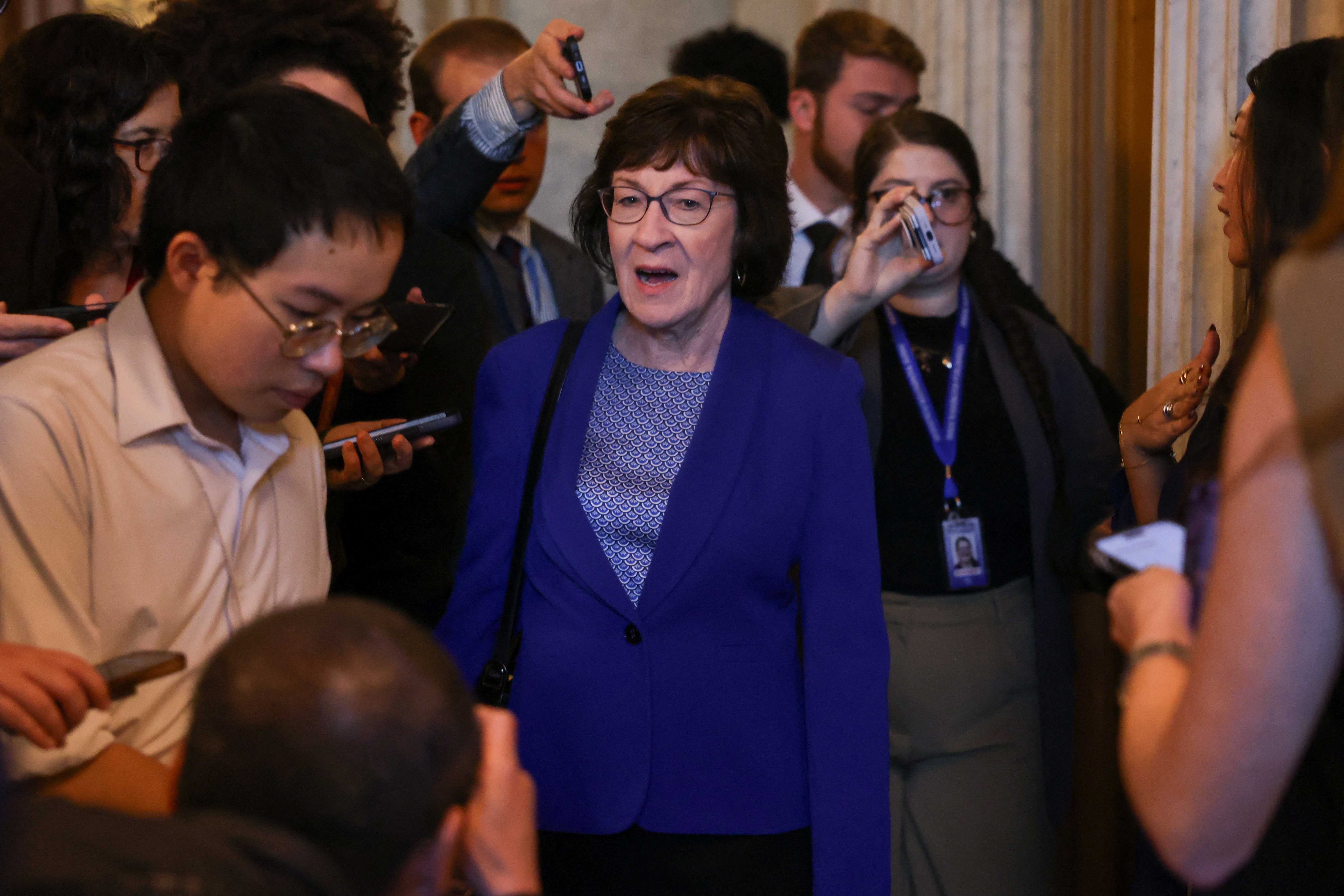Frank Bruni, The New York Times opinion writer says the notion of Democrats prevailing in the race to reclaim their Senate majority in 2026 is hardly a pipe dream and could become reality through some of the least expected places.
Alaska, a reliably red state where Republicans have won the state's electoral college votes in every election except Democrat Lyndon B. Johnson's 1964 landslide, could be one of those places.
Bruni explains how Alaska Republican Dan Sullivan is up for re-election, but if his Democratic opponent is Mary Peltola, a former member of Congress who was defeated in her statewide race to be re-elected to Alaska’s sole seat in the House by just two percentage points last year, she may have a very good chance at defeating him.
Peltola, he writes — "or another reasonably popular Democrat — should have a shot, especially given demographic changes in Alaska that seemingly cut in the party’s favor."
Bruni explains that while "it has been an article of faith that Democrats’ greatest hope for preventing Republican control of both chambers of Congress during the second half of President Trump’s term lies with the House," the "current frenzy of gerrymandering" could complicate that assumption.
This makes Bruni optimistic for Democrats.
"And there’s a case to be made that Democrats’ prospects in the Senate are better than commonly predicted. I stand bravely before you to make it," he writes. "The elections on Nov. 4 told a promising story."
Bruni says after the Democratic sweep on November 4, Republicans "have reason to sweat."
"Democrats won the governor’s races in Virginia and New Jersey by atypically large margins and in ways that reversed some advances that Trump had been making with Latinos. Those returns bespoke a degree of disgruntlement among voters that’s consistent with the president’s pathetic approval ratings. They also affirmed that when Trump himself isn’t on the ballot, Republican enthusiasm and turnout falter. He’s not on the ballot next year," Bruni notes.
Bruni also points to a few trends that look promising for Democrats: in Georgia, where Republican Governor Brian Kemp decided to sit out the race against Senator Jon Ossoff (D-GA), in North Carolina where Republican incumbent Thom Tillis decided not to seek a third term, and where former Democratic governor Roy Cooper is running and has consistently leading his presumed Republican opponent, Michael Whatley, in polls.
"Maine is probably up for grabs" too, Bruni writes, noting that "Sure, Senator Susan Collins, the Republican running for a sixth term, is a proven survivor. And yes, Democrats could be hampered by a messy primary battle between the oyster farmer Graham Platner, a favorite of progressives whose past social media outbursts and Nazi tattoo have dulled his shine, and the state’s more moderate governor, Janet Mills."
Despite that, Bruni gives Mills the edge, saying "She isn’t as easily caricatured and vilified as Platner, and her age, 77, isn’t a liability in the face of Collins, who’s 72. It’s one member of the gerontocracy against another. May the steeliest septuagenarian win."
"North Carolina and Maine would give Democrats two of the four pickups they need. Ohio could give them another," Bruni says, adding that in his attempt to return to the Senate, Sherrod Brown "runs far ahead of the Democratic norm in the state, as he demonstrated during his past Senate victories."
"If voters in 2026 are sour on Trump and sweet on change, Brown is well positioned to benefit from that recipe," Bruni says.
If Democrats win North Carolina, Maine, and Ohio, they would need just one more state, Bruni writes, assuming they win in Georgia and Michigan, and it's not Texas.
"As proof that I’m not becoming some deranged political Pollyanna, I won’t say Texas, whose incipient or imminent blueness has so often been proclaimed— and so often been disproved — that such forecasts should be outlawed until further notice," he writes.
Iowa is promising, Bruni says, where Republican incumbent Senator Joni Ernst is not running for reelection, but, he writes, Democrats could pull an upset anywhere.
"The party could pull an upset in any number of places if the mood is right, and it may well be, judging from what happened on Nov. 4 and from Trump’s continued over-interpretation of his supposed mandate and his irreparable habit of putting his own vanity, insecurity, cupidity and grievances ahead of competent governance and sensible economic stewardship," he says.
Bruni says that after Harris's defeat, Democrats "are allowing themselves some optimism, and in that new frame of mind, the dream of a Senate majority doesn’t look impossible at all."
And that dream may become possible through the unlikeliest of places, Bruni notes.
"Just last week, a nonprofit group with ties to Senator Chuck Schumer of New York, the Democratic minority leader, revealed a $1 million buy of ads aimed at shaming Republicans for failing to extend health insurance subsidies that expire this year. The states in which the ads were scheduled to run? Alaska, Maine, Ohio and Iowa, he says.
"There’s surely more where that came from, as the short stack of chips that the party was placing on a Senate majority grows taller," he adds.
